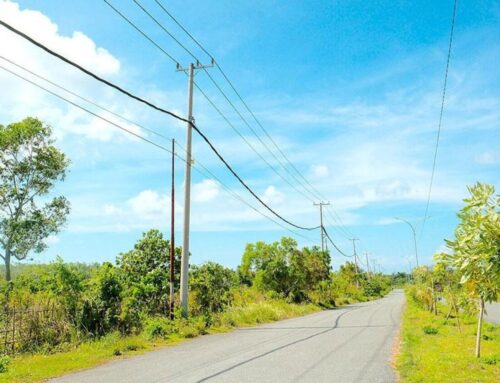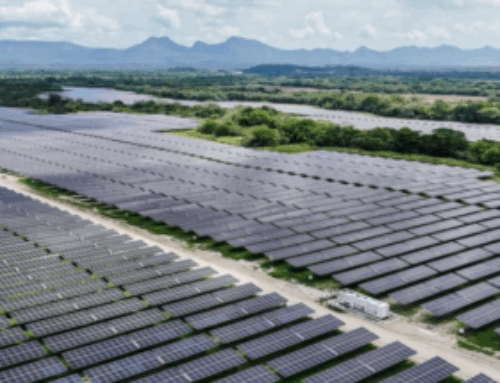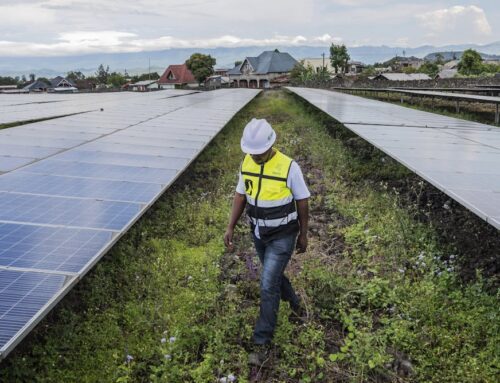Brazil: Don’t Strip Protection of Environment, Defenders
November 18, 2025
(Belém) – Brazil’s Congress should reject proposals to dismantle environmental licensing requirements and to revoke a plan to protect human rights defenders, Human Rights Watch said today. Instead, it should contribute to global efforts to curb climate change by approving the Escazú agreement.
“As the world comes together to tackle the climate crisis at COP30 in Brazil, its Congress is considering proposals that would exacerbate it,” said César Muñoz, Brazil director at Human Rights Watch. “Brazil’s elected leaders should protect basic rights, which are under threat from environmental degradation and global warming.”
Thousands of government officials, experts, journalists, environmental defenders, and representatives from nongovernmental organizations and business are gathered at the 30th annual United Nations climate summit (COP30), which runs through November 21, 2025, in the Brazilian city of Belém.
Meanwhile, in Brasilia, some lawmakers are promoting measures that would undermine the conference’s objectives, Human Rights Watch said.
The Senate announced a joint session of both chambers of the National Congress for November 27 to review the General Environmental Licensing Law. In July, lawmakers had approved the law, called the “devastation bill” by its opponents for eliminating environmental requirements and protections. In August, President Luiz Inácio Lula da Silva, signed the law, though he vetoed some problematic provisions.
Congress can override Lula’s vetoes by securing majorities in each house; 257 votes in the Chamber of Deputies and 41 in the Senate. Lawmakers could reinstate a vetoed provision that would allow those proposing small or medium sized projects with alleged small or medium environmental impact potential to obtain licenses simply by filling out an environmental adherence form, without any need for environmental impact assessments.
A study by the Climate Observatory, a coalition of Brazilian environmental organizations, found that among the projects that would be included in that category would be dams like the one that collapsed in Brumadinho on January 25, 2019, causing 270 deaths and very extensive environmental damage.
Congress could also reintroduce provisions that would reduce the protection of Indigenous and rural Afro-Brazilian communities whose territories have not been formally recognized by the authorities.
Congress is also considering at least seven proposals to suspend the National Plan to Protect Human Rights Defenders. Established by federal decree in November, the plan seeks to strengthen coordination of policies and programs to protect individual human rights defenders and communities under threat, and guarantees civil society participation in monitoring its implementation. Brazilian human rights organizations had been pressing successive governments to develop such a plan for 20 years.
In 2007, the government issued a decree that required the creation of the plan within 90 days, but it never happened. Ten years later, federal prosecutor Enrico Rodrigues de Freitas sued the federal government to force it to comply with the decree, and in 2021, in response, a federal court ordered the government to design the plan. In 2022, in the Sales Pimenta case, the Inter-American Court of Human Rights ordered Brazil to create a working group to develop actions to address the causes of violence against defenders.
The Brazilian government established the Sales Pimenta working group, whose members were authorities and civil society representatives in equal numbers, which drafted the plan. At a COP30 event on November 16, Rodrigues de Freitas said that suspension of the plan by Congress “would violate domestic and international judicial decisions.”
Congress should not just refrain from suspending the decree that established the plan, but the protection of rights defenders by turning the plan into a law Human Rights Watch said. The Sales Pimenta working group developed a draft bill with that goal, Rodrigues de Freitas said.
The human rights and citizenship minister, Macaé Evaristo, said at a COP30 event that 1,458 people are enrolled in the federal program to protect human rights defenders, many of whom defend land rights or the environment.
The Pastoral Land Commission, a nonprofit organization affiliated with the Catholic Church, reported that 13 people were killed in conflicts over the use of land and resources in 2024, while it had documented 272 death threats. The urgency of the plan was highlighted on November 16, when gunmen killed an Indigenous man and injured four others during an attack within an Indigenous territory that is in the process of being demarcated.
Ratification of the Escazú agreement, a landmark treaty for Latin American and Caribbean nations that advances the right to a healthy environment, would strengthen protection of environmental defenders, Human Rights Watch said. In addition, the treaty ensures access to information, public participation in decision-making, and pathways to prevent and redress environmental harm. The Chamber of Deputies approved it on November 5, and it is pending before the Senate.
“Brazil’s Congress should open its eyes to the enormous impact of environmental destruction on the lives of millions of Brazilians and of violence against defenders,” Muñoz said. “Members of Congress should send a signal to Brazilians and to the world by approving the Escazú agreement.”
Search
RECENT PRESS RELEASES
Related Post



